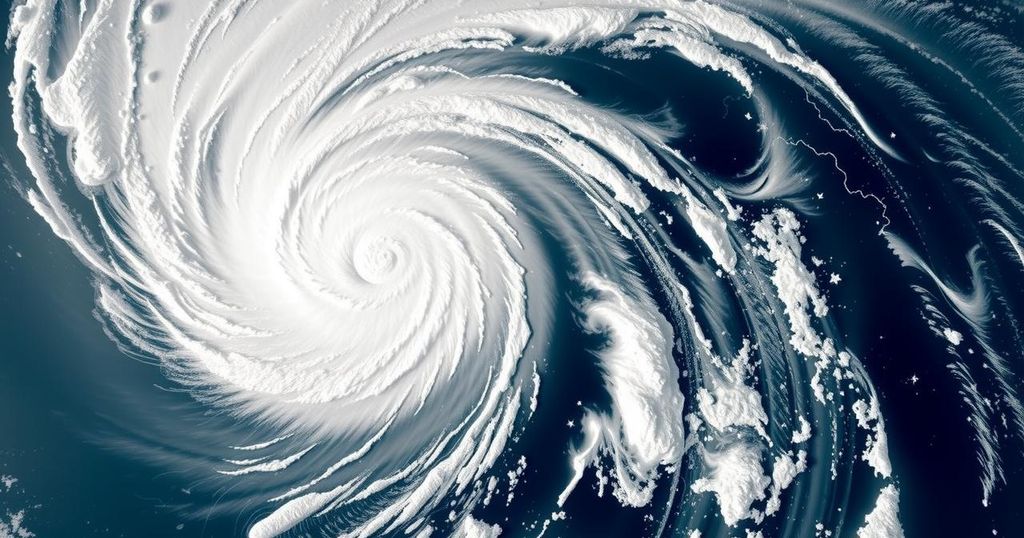Tropical Cyclone Chido Causes Widespread Damage in Mayotte, Threatens Eastern Africa

Cyclone Chido has caused severe damage in Mayotte with winds over 220 km/h, resulting in power outages and destruction of homes. Authorities have mobilized emergency services as the cyclone approaches Mozambique, posing a risk to millions. Preparations are underway in Malawi and Zimbabwe for potential flooding, highlighting the severe impact of such weather events exacerbated by climate change.
Tropical Cyclone Chido has inflicted significant damage on Mayotte, a French territory in the Indian Ocean, as it approaches the eastern African coast. With winds exceeding 220 kilometers per hour, the cyclone has devastated buildings and infrastructure on the islands that host a population of over 300,000. Prefect Francois-Xavier Bieuville remarked on the severity of the storm, marking it as the most destructive since 1934. Local authorities have mobilized emergency services, although the general public remains under a red alert and advised to seek shelter.
In Mayotte, the aftermath of Cyclone Chido has been characterized by widespread power outages, the destruction of homes, and extensive tree damage. The French government has dispatched over 250 rescue personnel to assist in response efforts. As the cyclone advances, the nearby Comoros islands are also experiencing severe weather, raising concerns about missing fishermen. Additionally, maritime activities have been restricted, and key infrastructure, including airports and schools, has been closed in preparation for the storm’s impact.
Forecasts indicate that Cyclone Chido will continue its eastern path towards Mozambique, where it could affect an estimated 2.5 million residents in the northern provinces. Malawi and Zimbabwe are also bracing for potential flooding and evacuations as a result of the cyclone’s approach. The cyclone season from December to March has consistently seen a surge in such weather events, prompting fears of humanitarian crises exacerbated by climate change and resource deficiencies in affected regions. Historical precedent suggests that such cyclones can lead to devastating impacts on public health, including outbreaks of cholera and other waterborne diseases.
The phenomenon of cyclones in the Indian Ocean significantly influences the southeastern coastal regions of Africa. Cyclone Chido is part of the cyclone season that typically extends from December to March, during which several powerful storms have historically caused widespread devastation. Countries like Mozambique, Malawi, and Zimbabwe are particularly vulnerable due to their geographic locations and limited resources to effectively manage disaster recovery and public health risks posed by these natural disasters. The interplay between climate change and the increasing severity of cyclones brings attention to the socio-economic challenges faced by poorer nations impacted by such environmental occurrences.
In summary, Cyclone Chido is causing extensive havoc in both Mayotte and the potential path towards mainland Mozambique. With substantial winds and infrastructural damage reported, local emergency services are fully mobilized to address the aftermath. Furthermore, neighboring nations are on high alert as they prepare for the cyclone’s impact. The escalating severity of such storms underscores the ongoing crisis related to climate change and its disproportionate effects on vulnerable populations in southern Africa.
Original Source: www.voanews.com






